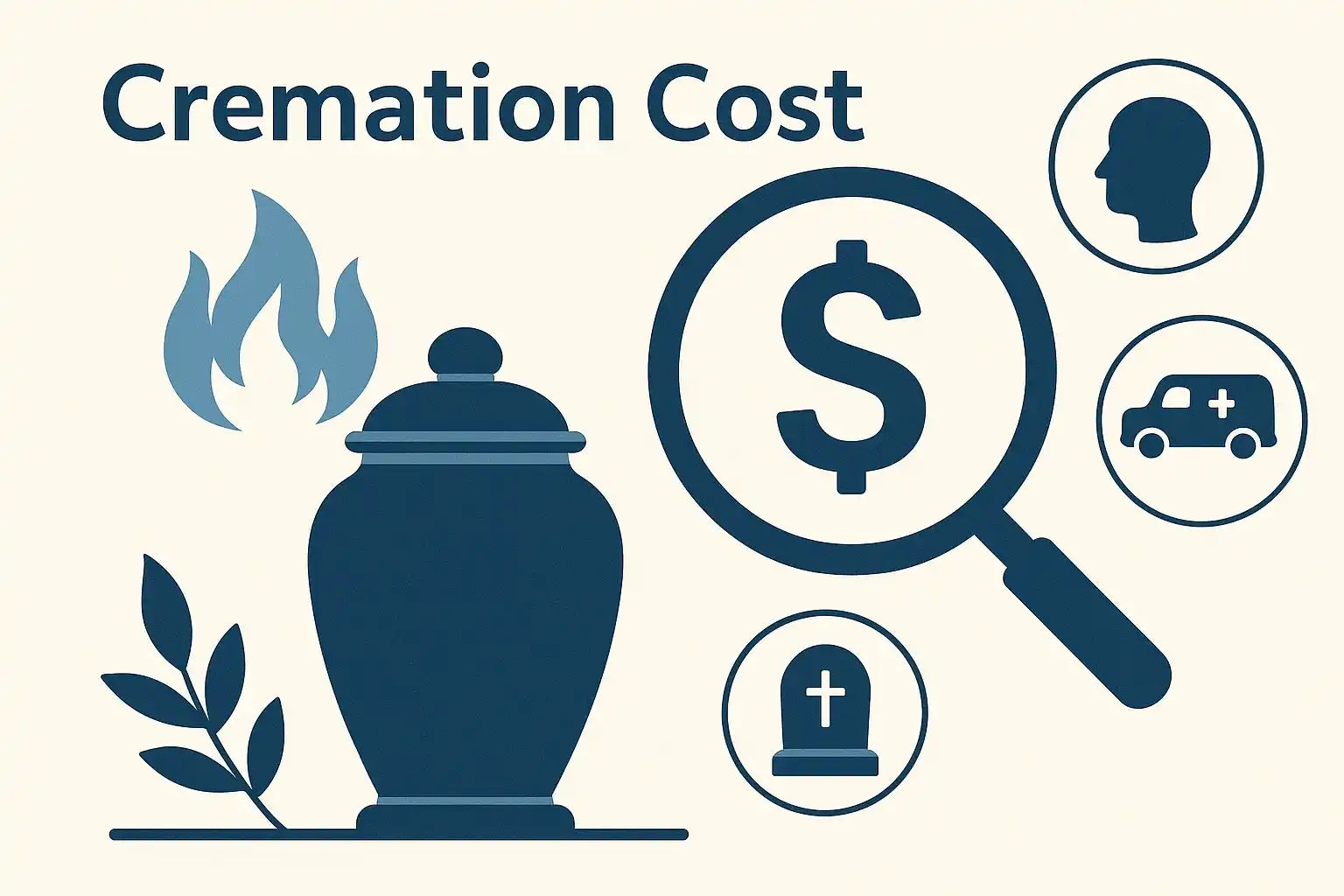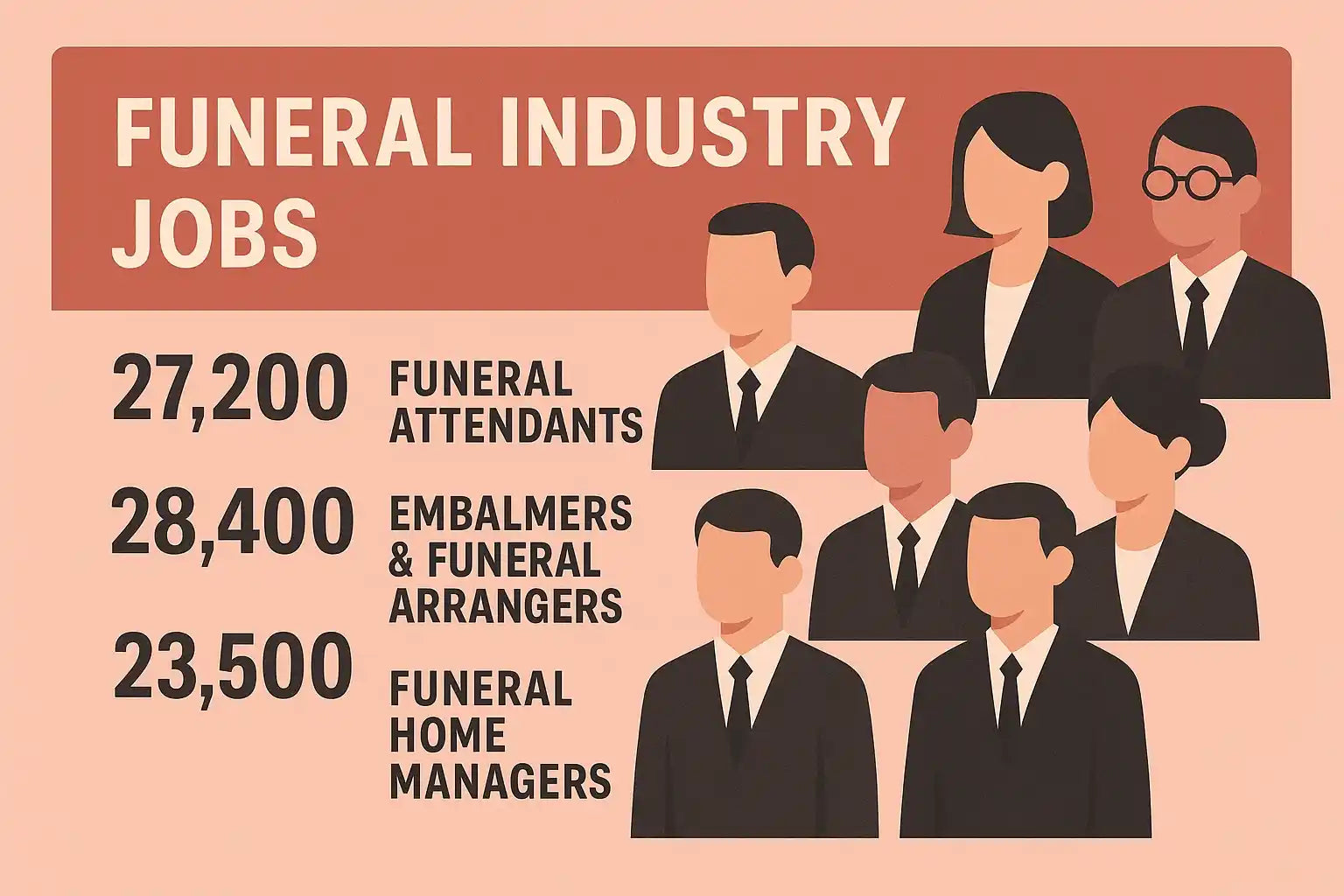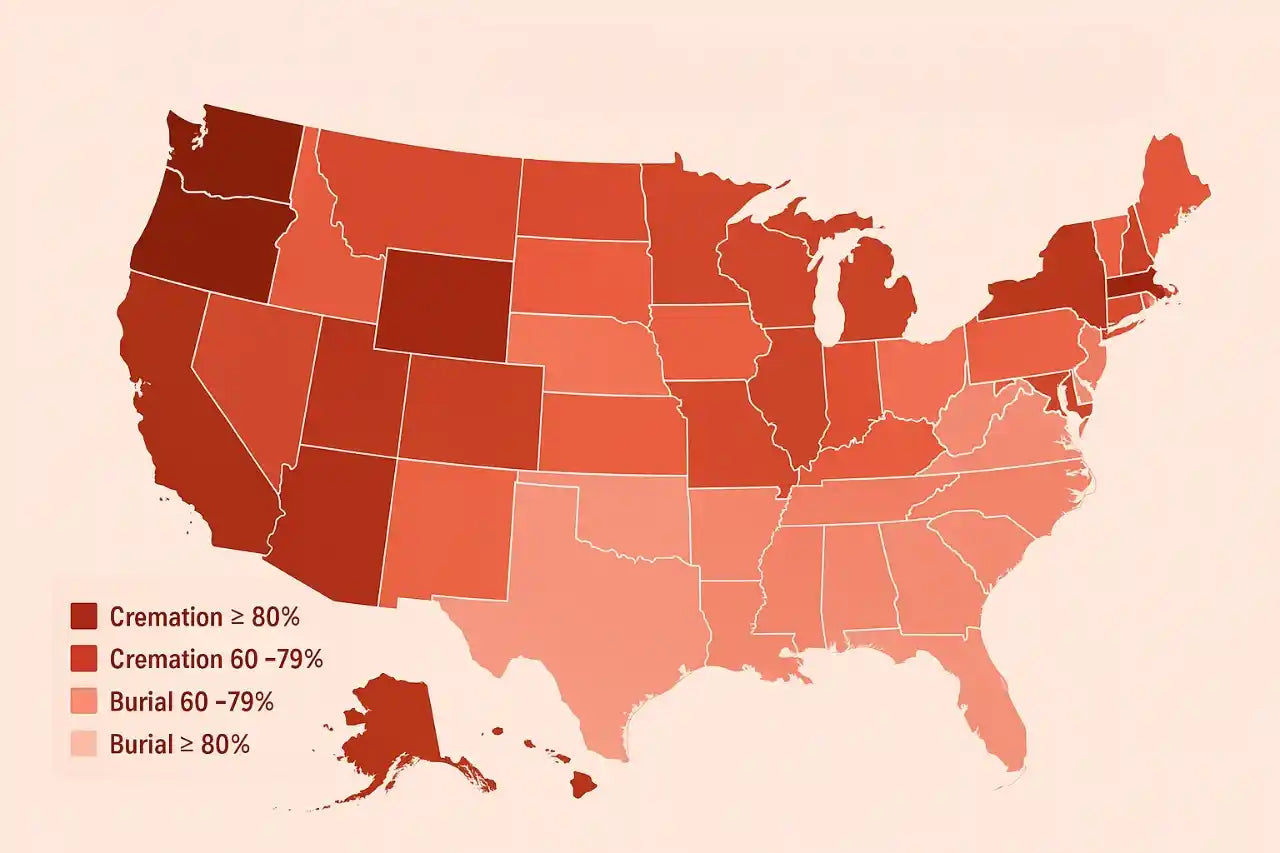Planning a funeral is never easy, and when you're trying to stay practical about costs, it can feel overwhelming fast. Many families today are choosing direct cremation without extra services because it’s simple, respectful, and much more affordable than a traditional funeral.
On average, direct cremation without services costs between $600 and $3,000, depending on your location and the provider you choose.
But how much you’ll pay depends on a few key factors, like city fees, transportation, and whether basic items like a simple container are included. Some providers keep it straightforward, while others quietly stack on extra charges you might not expect.

If you're going through this for the first time, having a clear understanding of what direct cremation covers and what it doesn’t will help you avoid surprises.
In this guide, we’ll break down real cremation costs, explain what’s essential (and what’s optional), and show you how to make smart, respectful choices that fit your family's needs and budget.
What Does “Cremation Without Services” Actually Mean?
When you hear "cremation without services," it simply means a direct cremation; no viewing, no funeral ceremony, and no memorial event organized by the funeral home. It’s the most basic, straightforward form of cremation you can choose.
Here’s what typically happens: After a loved one passes away, the funeral home or cremation provider arranges transportation, completes the necessary paperwork, and performs the cremation itself. The ashes are then returned to the family, usually in a basic container or urn.
There’s no formal gathering, no embalming, no dressing of the body, and no time spent in a chapel. You're paying strictly for the essentials: the cremation process and legal documentation.
This option gives families the flexibility to hold a private memorial later, in their own way and on their own schedule, without the higher costs tied to traditional services. It’s a choice many people make when they want something simple, respectful, and financially manageable.
Average Cost of Cremation Without Services in 2025
As of 2025, the national average cost for direct cremation, meaning cremation without any formal funeral services, is approximately $1,500.
That said, the cost range varies widely across the country. Most families can expect to pay between $600 and $3,000 for direct cremation.
Why the Cost Range Varies ($600–$3,000)
The wide gap in pricing comes down to a few key factors:
-
Location: Cremation tends to be more expensive in major metropolitan areas compared to smaller towns.
-
Type of provider: Independent crematories often charge less than full-service funeral homes.
-
What’s included: Some providers offer simple, no-frills cremations, while others bundle in transportation, paperwork assistance, and a basic urn, which raises the total cost.
For example, a direct cremation in a small town might start around $600, while the same service in a busy city could easily exceed $2,000.
Cost Trends Over the Past 5 Years
In the past five years, direct cremation costs have slowly increased due to rising operational expenses like fuel, staffing, and facility maintenance. On average, families have seen price increases of $50 to $750, depending on location and provider.
Despite the gradual rise, direct cremation remains one of the most affordable end-of-life options available today.
Cost Breakdown: Where the Money Goes
Even with direct cremation, there are a few unavoidable costs you’ll need to understand. Here's where your money typically goes during the process:

Transportation of the Body: The first cost you’ll encounter is the transportation of the body from the place of death, whether it’s a hospital, hospice, or private residence, to the crematory or funeral home. On average, this fee ranges between $150 and $500, depending on the distance and time of day. Longer pickups, rural areas, or emergency after-hours calls often increase the price.
Basic Paperwork and Permits: Handling the legal side of cremation isn’t free. Providers take care of securing cremation permits, filing death certificates, and managing local legal requirements. For this administrative work, families usually pay between $100 and $250. Though often overlooked, this step is essential to ensure everything is properly documented.
Crematory Fee: The core of direct cremation is, of course, the cremation process itself. The crematory fee typically falls between $300 and $800. This covers the use of the cremation equipment, licensed professionals to handle the procedure, and maintaining the facility. Depending on your region and provider, this can be one of the largest portions of the final bill.
Container for the Body (Alternative Container): Even with direct cremation, a body must be placed in a rigid, combustible container, usually a simple cardboard or fiberboard box. These alternative containers are a requirement and generally cost between $50 and $150. Some providers include them in the base price, while others list them as a separate line item.
Temporary Urn (if Provided): Once cremation is complete, ashes are typically returned in a basic, temporary urn unless a family chooses to purchase a permanent one. If a temporary urn is included, there may be no added cost. However, if there’s an upgrade option, prices can range from $0 to $70 depending on the material and design.
Death Certificate Copies: Most families will need multiple certified copies of the death certificate to handle legal matters like insurance claims, banking, and property titles. These certificates are usually sold separately, costing around $10 to $30 per copy, depending on your state. The first copy often costs more, with slightly discounted pricing for each additional copy ordered at the same time.
How Soon After Death Can Cremation Occur?
Cremation usually takes place within 2 to 7 days after death, depending on state laws and paperwork requirements. Before cremation can happen, a death certificate must be issued and any mandatory waiting periods must pass: some states require a 24- to 48-hour delay.
In most cases, families also need to complete authorization forms. If an autopsy is needed or if the death is under investigation, the timeline may be longer. Funeral homes and crematories will guide you through the expected schedule.
Can I Arrange Cremation Without Using a Funeral Home?
Yes, you can arrange cremation directly through a licensed crematory without involving a full-service funeral home. This is often called “direct cremation” and is usually more affordable because it skips traditional funeral services. However, you’ll still need to handle essential paperwork like the death certificate and cremation permits.
Some crematories offer simplified packages that help guide families through these steps, making it a practical option for those who want a straightforward, lower-cost process.
Do I Need a Casket for Cremation?
No, you do not need a traditional casket for cremation. Crematories only require the body to be placed in a rigid, combustible container, often called an "alternative container."
These are typically made of cardboard, fiberboard, or plywood. If you plan to have a viewing beforehand, you can rent a ceremonial casket from a funeral home to avoid buying one outright. For direct cremation without a service, a simple alternative container is all you need.
Is It Legal to Scatter Ashes Anywhere?
Scattering ashes is legal in many places, but there are restrictions you need to be aware of. Public parks, private property, lakes, and oceans often have specific rules or require permission. Generally, you can scatter ashes on your private property or in the ocean (at least three nautical miles from shore) without special permits. If you want to scatter ashes in a public or protected space, it's important to check local laws or get approval first to avoid any legal issues.
Will I Receive All of My Loved One’s Ashes?
Yes, the crematory returns all recoverable cremated remains to the family. After the cremation process, the remains are carefully collected, processed into a fine powder, and placed in a container or urn.
While some tiny particles may be lost inside the cremation chamber itself, the vast majority of the remains are returned. Crematories follow strict identification protocols to ensure you receive your loved one’s ashes, and most states regulate these procedures to protect families.
What Paperwork Do I Need to Complete for Cremation?
Several documents must be completed before cremation can happen. Typically, you’ll need a signed death certificate, a cremation authorization form from the next of kin or legal representative, and any necessary cremation permits issued by local authorities.
Some states also require a medical examiner’s approval before cremation. Your funeral home or crematory will usually help coordinate these steps, but it’s important to review all forms carefully to avoid any delays.
What Happens to Metal Implants During Cremation?
During cremation, metal implants such as joint replacements, dental fillings, or surgical screws do not burn away. After the cremation process, the remaining metal pieces are separated from the ashes using magnets or manual methods. In most cases, the metal is recycled responsibly by the crematory and not returned to the family. Some crematories partner with specialized recycling programs that donate proceeds from metal recovery to charitable causes.
Can I Attend the Cremation if There’s No Service?
Yes, many crematories allow families to witness the start of the cremation process even if there’s no formal service. This is known as a “witness cremation.” It provides an opportunity for a final goodbye or a moment of closure.
There may be a small additional fee for witnessing, and you’ll need to coordinate it in advance. Not all crematories offer this option, so it’s important to ask if it's something you would like to include in your arrangements.
How Can I Verify That the Ashes I Receive Are My Loved One’s?
Crematories follow strict identification procedures to ensure the correct ashes are returned. From the moment the body is received, an identification tag or unique tracking number stays with the remains throughout the entire process.
After cremation, this tag is matched with the paperwork before the ashes are packaged and returned. You can always ask the crematory to explain their specific chain-of-custody procedures if you want extra peace of mind.


